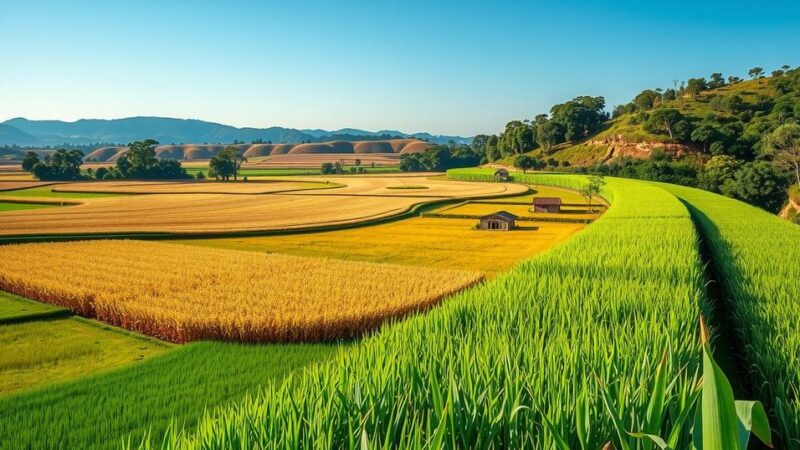Malawi is currently facing major protests due to rising prices and inflation, which hit 30% in February. Nearly 75% of the population lives in extreme poverty, adversely affecting food prices. The government has imposed import bans in an effort to boost local production, yet critics question the efficacy of their strategies. As elections approach, pressure mounts on leadership to address the economic crisis.
Malawi is currently witnessing widespread protests triggered by soaring prices, just months ahead of the upcoming elections in September. The nation is grappling with its most severe economic crisis in decades, mirroring the struggles of many citizens, particularly vendors in Lilongwe’s Tsoka second-hand clothing market. Steve Magombo, leader of the vendors’ association, voiced concerns regarding inflation, which reached 30% year-on-year in February, culminating in a march of 5,000 vendors to parliament—Lilongwe’s largest demonstration in years.
Demonstrations have also proliferated in at least four other cities, clearly illustrating the public’s rising discontent. With nearly 75% of Malawi’s 21 million citizens living in extreme poverty, the crisis has critically impacted food prices. Inflation on essential commodities, such as maize, soared to 38.5% in February, resulting in the price of a 50 kg bag of maize nearly tripling since December to an exorbitant 110,000 kwacha ($63), which greatly exceeds the country’s monthly minimum wage of $52—only $26 for domestic workers.
James Woods, a UK-based policy expert, remarked, “For a net-importing country, the collapse of the kwacha has been catastrophic, fuelling import costs and further stoking inflation in a vicious cycle.” The Malawian kwacha has plummeted more than half its value since 2022 due to sharp devaluations, exacerbated by shortages in foreign currency that hinder imports and complicate supply chains.
In response to this crisis, the government has imposed bans on certain imports, including Irish potatoes, maize flour, fresh milk, and meat products, to promote local production. However, critics contend that there is no coherent strategy from the authorities to stabilize the economy. Gift Trapence, leader of the Human Rights Defenders Coalition, expressed, “The government seems to have no clue on how to bring the economy back on track.”
President Lazarus Chakwera, at 69 years old and winner of the 2020 election with 58% of the votes, is now confronted with a challenging re-election campaign, particularly with former President Peter Mutharika, 85, vying for a political revival. The worsening economic conditions have intensified the pressure on the current government to take immediate action as the nation prepares for the forthcoming polls.
In conclusion, Malawi is facing significant economic turmoil marked by high inflation and widespread public unrest ahead of the September elections. The crisis impacts food prices severely and has driven citizens to protest against government inaction. Amidst rising discontent and political challenges, the future stability of Malawi’s economy remains precarious, with urgent need for effective governmental strategies.
Original Source: newscentral.africa






